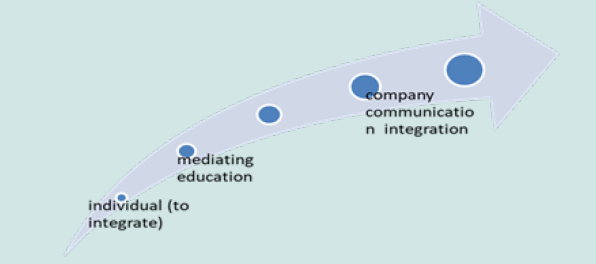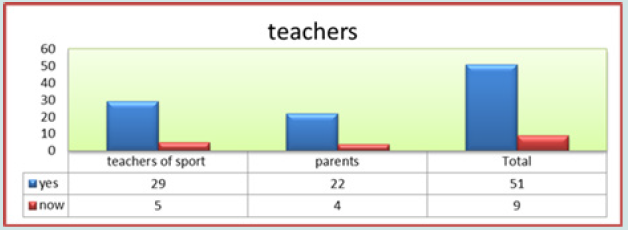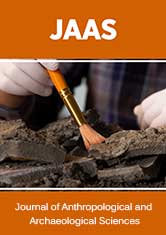
Lupine Publishers Group
Lupine Publishers
Menu
ISSN: 2690-5752
Research Article(ISSN: 2690-5752) 
Education of Today Society of Tomorrow Volume 7 - Issue 5
Nabil Jouini*
- Tunisia
Received:February 27, 2023; Published: March 07, 2023
Corresponding author:Nabil Jouini, Tunisia
DOI: 10.32474/JAAS.2023.07.000275
Abstract
Faced today with the accelerated and unexpected changes which characterize our world, thus raising apprehensions and uncertainties, and with the scientific conclusions which demonstrate our share of responsibility vis-à-vis the degradation of the planet, voices are constantly rising to give the alert. The earth is dying and action must be taken. For this reason, there is an increasing use of education as a means of promoting the values, behaviors and attitudes essential for building a new world. This is why I seek to enhance the importance of education through my research.
Keywords:Society; Education; Citizenship; Requirement
Introduction
What problems will tomorrow’s education have to solve? society and education: the question of the link or the link in question? Our society consists of multiple groups of individuals who unite and live with their differences, tradition, religions, values and more. We live in a different world in which mindsets and people views differ from everyone that does not only influence our society but also finds politics that represents a huge part of its impact. On the international level, democracy will be the perfect system to achieve that. But what are the merits of living in a democratic society on the moral and political level, on the global level? In confronting the varied future challenges, it seems that education represents a paramount credit in order to enable humans to advance towards idols represented in peace, freedom and social justice. So, the essential role of education in the constant development of the individual and societies is not a miracle for a world that accomplished all the idols, but as a path, among other things, of course, even more than others in serving a more harmonious and authentic human development in the purpose of reducing poverty, tyranny, misunderstanding, oppression and wars.
All the human society derives its cohesion from a set of activities and common projects, but also from common values that make many aspects of “the desire to live together”. Over time, these material and spiritual connections are enriched to become a cultural legacy in the individual and collective memory, with the broad sense of the word, which establishes the feeling of belonging and solidarity . Education, all over the world, in all its forms, has the mission of building social bonds amongst individuals on the basis of common resources. Used means include the diversity of cultures and circumstances, but in all cases, the goal of education is human development in their social dimension. It is defined as a means of cultures and values, like building a space for social media, and joint project. It is known that education is a human advantage and that the human being can achieve his humanity only through education and that human nature flourishes with sound education.
There is no dispute about it , and there is no doubt that education has a fundamental role in the advancement of any society , whatever or whenever it is , the countries of today advanced are advanced solely through betting on this fertile and vital field , this did not come over , too , except via looking at education from a philosophical approach ; where Education does not completely create a person rather, it merely develops certain characteristics and natural preparations. Education is also linked to progress and pushes the human being on the path of completion and skip its shortcomings , ending its contradictions and being torn apart by the universe , its affiliation with the order of natural beings Thus , proper education makes a human worthwhile and relieves him of savagery and saves him from barbaric brutality and education based on arbitrariness and coercion that bring him back to the animal’s status and strengthens the desire for possession and the degree of selfishness and aggression . For this reason, we must reject the existence of a correct and renowned idea of ideal education, and push thinking towards establishing foundations and rules for education that are compatible with the qualifications of human nature and that is in line with the transformations of the times. Thus, every society necessarily has a theoretical philosophy that creates an educational philosophy, the latter means that the tendency to education is a holistic approach in terms of the basis on which to build on it, and in terms of its goals and objectives that it aims to, as well as the existing educational system, critical and analytical look. What we need most today is this critical approach in Tunisia, which is failing randomly with improvisation of decisions regarding its educational system. This aspect can be described as epistemological work in the field of education.
Moreover, if sociology is searching for the relationship between the child and the school in education and its interaction with society and social reality, and if pedagogy is asking about the ways and means by which the educational process is carried out, the philosophy of education asks broader and more comprehensive questions such as wondering what does education mean? What are the goals that a person should aim for from this education and the desired ones? Talking about the meaning of education in a general and holistic way calls for a group of interrelated and different elements, such as what is socio-economic, political and cultural. In addition to what is psychological, perhaps education is the focus from which all these fields come, and then we can say that education on this essential preparation of the individual to be able to take in this life, and merging with it according to the conditions that this life dictates and requires, but more than that, can create conditions that suit this person. Durkheim [1] affirms three main principles: the school socializes with a universal culture; this socialization is necessary for the formation of an autonomous subject; the school hierarchy conforms to the functional needs of society. These three elements are at the heart of political and moral belief in education as a force for progress and social integration. Here, the school conditions the pupils much more than it liberates them: “the belief in the objectivity of the school culture and in the liberating role of the school is only a fiction necessary for the accomplishment of “A function of reproducing inequalities.”
Therefore, a person through education determines his uniqueness and distinction, and in this Kant [2] sees that “a person is not a human being except by education. Education is what makes a person distinct from the animal”. Man can only become man through education. It’s only what education makes him. This statement by Kant on the issue of education is the faithful echo of Emile [3]”We shape plants by culture, and men by education.”
Break with the social environment that is imposed on us education has become a fact of society. Its dimensions have continued to expand: educational, social, cultural, economic and media, they penetrate the sphere of health and well-being (Figure 1) that is, if we ask a human being, what is a person according to what Olivier Reboul [4,5] sees in his book The Philosophy of Education–what is he distinguished for? He answered by work, language or culture, as this last cannot be in the person who is unique to it. This calls for the necessity of coordinating educational work according to a specific pedagogical model that clarifies the process of the educational operation and presents the ways that lead to the objectives of this process ; the pedagogical relationship with education is a correlation one , so the educational process cannot take place without this element, which is considered to be its facilitator, otherwise , the educational act will be anarchic , unsystematic, and thus meaningless and purposeless . The educational act requires that it be subject to a defined system in which the constituent elements of this act are observed and provides it with conditions that can facilitate the progress of the educational process, including providing the appropriate work conditions for the teacher, the student and even the administrative staff and others (Figure 2).
Figure 1: Education has become a fact of society. Its dimensions have continued to expand, educational, social, cultural, economic and media, they penetrate the sphere of health and well-being.

But before this we should pay attention to an important question, except when it is to provide all these conditions , that is , what is the purpose of the educational act in general? On this point, we return to an important question raised by many philosophers of education, and it is a question of who is a human being so that we must educate him ? And why should we educate this person? Most of the time the answer to such questions is that if we want to know why we educate, we must first know why a person lives. “That is, to ask what could be the goal of life and what kind of life it should be , and then we have to ask about the nature of the world and about the limits it sets against what people can know and what they can teach “. In other words, philosophers wants to make the famous Kantian question applies in reality as long as education is the applied field of philosophy. Hence the result that all people live for life (in search of a happy, less miserable life).
Therefore, it can be said that the biggest question that faces the educational thought is the issue of originality in parallel with the rapid progress that today world knows on several levels, as well as foreseeing the future of education in the world, and the future of our children, which will be more in line with the reality and the requirements of life. Education or pedagogy must be based on freshness, thinking or vision, if it does not want to develop human nature to reach its goal. So, to what extent can we with the great questions that the philosophy of education emphasizes-produce, establish an education capable of making a person consistent with life, free and responsible. While applying our two research methods (observation and questionnaire) and according to the statistical analysis, we found that Education is the most effective way of acquiring the skills of all children and young people, the attitudes, values, knowledge and ideas necessary for participation in social life throughout life Profound transformations in society make certain ethical and ethical questions more acute and raise new ones. School can’t dodge them So there is an idea here of escaping social violence through school rather than reproducing it, producing it and nurturing it. The Education system is the tool available to society to equip children with the skills and knowledge necessary and appropriate to fulfill their potential and assume their responsibilities in life. Education is a vehicle for transmitting the rising generation of values, attitudes, beliefs, norms and behaviors considered important by society; it is also an instrument of social transformation (Table 1).
Table 1. To finish it we rely on this table which highlights the important role of education and its impact for the individual in society.

a) In a society where the forces of change and inertia are in conflict; does education present a force for social survival?<
b) Is it possible to break away from the social environment imposed on us by the school?
wCan School Transform Society?
On the one hand, it is a place of learning for young people and on the other hand, it is a place of sociability and exchanges. However, the school also transmits skills and attitudes, attitudes.
The rules to be respected, the examples given by adults, the values conveyed, the exchange of ideas, the artistic subjects that can be addressed, efforts to help you develop your critical sense... Beyond all that can bring you the educational team, the school is also a meeting place between students! It’s even the first place to socialize for young people. It is a place where styles, manner of speaking, consumption practices, initiation practices, media references are displayed (Figure 3).
Figure 3: By the results obtained after a statistical analysis we notice that the difference is very significant for the role of education as forces of change by a KHI 2 = 20.04.

Citizenship at school
a) “We don’t born a citizen, we become…”
It is up to the school to “train the future citizen” through several mechanisms. The school is the central place in the learning of citizenship the pupil experiences his rights and his duties explained in the internal regulations – drawn up moreover with the participation of the entire educational community. It also exercises democracy there since votes are organized to elect delegates. He can also join the socio-educational home or high school student’s house: association run by the students, it offers extracurricular activities and can serve as a solidarity fund. Moral and civic education aims at the acquisition of a moral and civic culture and of a critical mind, the purpose of which is to develop dispositions enabling pupils to become progressively aware of their responsibilities in their personal and social life. This teaching articulates values, knowledge and practices. In school, education for citizenship involves, in particular, learning to respect others. School space and social space in a more general way require us to live with others and to consider that they are worthy of our respect, just as we can demand this respect in return, even, and above all, with those for whom we do not feel any affinity (Figure 4).
Figure 4: The Khi2 test reveals a very significant difference for the presence of the school and for the role that plays in ensuring good social integration.

Towards a universal dimension of citizenship
At high school level, civic education introduces the “practice of pluralism” in the exercise of citizenship, thus promoting the recognition of the Other, the right to be different, the plurality of opinions, the relativity of any vision of reality… While the programs relating to the first two levels of education deal with civic identity in its various dimensions, that intended for the third-year privileges identity in its universal dimension. This program is structured around two lines of thought.
a) Identity does not exclude universality and extends to cover “the community international”.
b) The universal principles of human rights, democratic values, as well as that concerns relating to the contemporary world such as the problem of the environment, give citizenship a global dimension that gives full meaning of the concept of “citizen of the world.”
Figure 5: The Khi2 test reveals a very significant difference for the presence of the school and for the role that plays in ensuring good social integration.

Conclusion
The concept of citizenship is both present in our daily lives but also very vague and imprecise. It refers to the rights, freedoms, voting, demonstrations, nationality, etc. but it is also increasingly present in commitments within associations, transnational mobilizations, neighborhood committees… This is an evolving concept that has been built through the centuries, based on the concerns of the populations and the common way of life that they chose. “Modern citizenship is not an essence, given once for all but one story. »
References
- Durkheim (op Cit, 1922)
- Kant (Ammonial), Reflections on Education, aforementioned source pp. 11-20.
- Jean Jacques Rousseau (1966) Émile ou De l'éducation, Garnier-Flammarion.
- Olivier Reboul (1974) L'élan humain ou l'éducation selon Alain - Paris: é J. Vrin; Montréal: Presses de l'université de Montréal,-coll. L'Enfant n°XVI.
- Rebérioux M (2009) «Origines et actualité de la citoyenneté», in Vive la République, Paris, Demopolis.

Top Editors
-

Mark E Smith
Bio chemistry
University of Texas Medical Branch, USA -

Lawrence A Presley
Department of Criminal Justice
Liberty University, USA -

Thomas W Miller
Department of Psychiatry
University of Kentucky, USA -

Gjumrakch Aliev
Department of Medicine
Gally International Biomedical Research & Consulting LLC, USA -

Christopher Bryant
Department of Urbanisation and Agricultural
Montreal university, USA -

Robert William Frare
Oral & Maxillofacial Pathology
New York University, USA -

Rudolph Modesto Navari
Gastroenterology and Hepatology
University of Alabama, UK -

Andrew Hague
Department of Medicine
Universities of Bradford, UK -

George Gregory Buttigieg
Maltese College of Obstetrics and Gynaecology, Europe -

Chen-Hsiung Yeh
Oncology
Circulogene Theranostics, England -
.png)
Emilio Bucio-Carrillo
Radiation Chemistry
National University of Mexico, USA -
.jpg)
Casey J Grenier
Analytical Chemistry
Wentworth Institute of Technology, USA -
Hany Atalah
Minimally Invasive Surgery
Mercer University school of Medicine, USA -

Abu-Hussein Muhamad
Pediatric Dentistry
University of Athens , Greece

The annual scholar awards from Lupine Publishers honor a selected number Read More...





